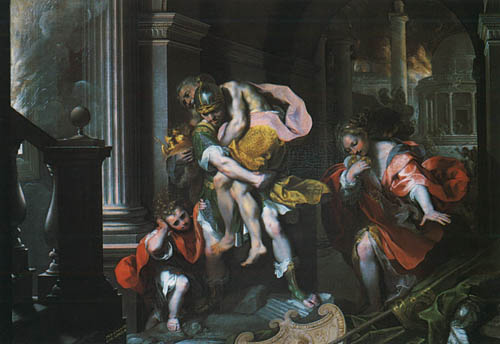(written on the night of 4/11/13)

The shock of the journey that lies before me is great;
Knowing the danger, the trial, the fear.
Do I move? Do I act? Do I fight? Do I try?
Or is it better to simply stay here?
I will try. I can at least do that,
Though I don’t know if I’ll make it tonight,
Home is the better place to be.
So I will try. I’ll move. I’ll act. I’ll fight.
The snow is harsh. It tears through the sky and it assimilates the ground in a layer several inches deep.
The ice on my windshield is thick. I force it off; scraping away little by little until the snow is the only thing blinding my vision.
I am finally ready to cast off, and set my sail in the winter storm.
Say a prayer for me Sam.
I’m off and away; clinging to the tracks of those who have come before me.
The road climbs. It falls. It climbs. It turns. And now there is only one forerunner to follow.
But suddenly I remember truth. Oh truth, how welcome your sweet taste is to my mouth.
A smile. Oh yes, now I know. Now I know I’ll be home. The God of the storm is my Father.
A smile and fear, as I make my way there, and now no tracks are left here to guide.
I have made it to the port, but one hill stands yet to climb – the wind still falling, the snow still biting, and a giddy spring in my step.
I see the house and the light at the top of the mountain, and I jump up the hill in my soaking socks.
I’m welcomed by the light, by the warmth, by the rest;
Miles from where I once stood.
I am home. Yes, I am home.
I am home. And life is good.
The shock of the journey that lies before me is great
Knowing the danger, the trial, the fear.
Do I move? Do I act? Do I fight? Do I try?
Or is it better to simply stay here?
I will try. I can at least do that,
Though I don’t know if I’ll make it tonight,
Home is the better place to be.
So I will try. I’ll move. I’ll act. I’ll fight.
I’ll fight in the truth, and I’ll sail through His storm.
Say a prayer for me Sam.
With a smile and fear I will travel to the end of my road,
Welcomed by the I AM;
Welcomed by the light, by the warmth, by the rest;
Miles from where I once stood.
I am home. Yes, I am home.
I am home. And Life is good.






